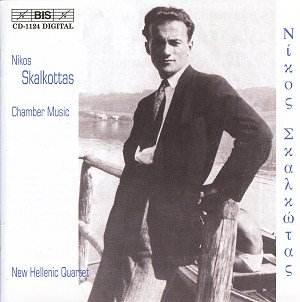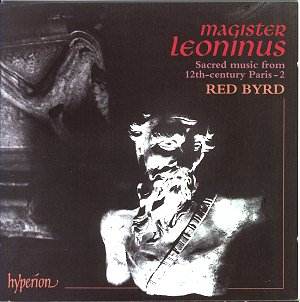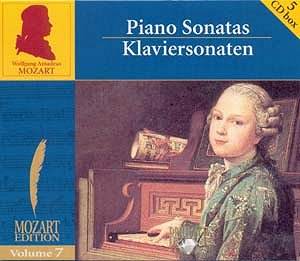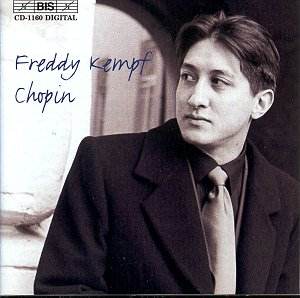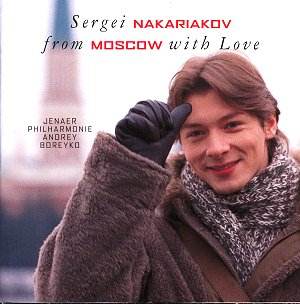 Composer: Alexander Arutiunian, Moisei Vainberg, Reinhold Glière
Composer: Alexander Arutiunian, Moisei Vainberg, Reinhold Glière
Works: Concerto for Trumpet and Orchestra (Arutiunian), Concerto for Trumpet and Orchestra Op. 94 (Vainberg), Concerto for Horn and Orchestra Op. 91 (Glière)
Performers: Sergei Nakariakov, trumpet and flügel horn; Jenaer Philharmonie/Andrey Boreyko
Recording: Volkshaus, Jena 22-26/02/01
Label: TELDEC CLASSICS 8573-85558-2
The album “From Moscow with Love,” featuring the prodigious talents of Sergei Nakariakov, offers a compelling exploration of 20th-century trumpet repertoire, encompassing works by Arutiunian, Vainberg, and Glière. The historical context of these pieces is rich; they each reflect the cultural and musical currents of their respective eras in Soviet Russia. Arutiunian’s early work, written in the aftermath of World War II, carries a vibrant spirit influenced by the folk traditions of Armenia, while Vainberg’s mid-century concerto reveals a complex interplay of lyricism and technical bravura, punctuated by clever allusions to the Western canon. Glière’s later work, while stylistically more conservative, speaks to the lingering Romanticism of the time.
Nakariakov’s interpretation shines particularly in Arutiunian’s Concerto for Trumpet, where he deftly navigates the lyrical demands of the piece. The first movement’s orchestral introduction leads to a principal trumpet theme that is immediately infused with a bluesy, jazzy sensibility, reminiscent of Shostakovich’s lighter works. Nakariakov’s legato playing in the slower passages is exquisite, demonstrating not only technical prowess but also an emotional depth that resonates throughout the work. The recording captures the nuanced timbre of Nakariakov’s trumpet, with a clarity that allows the listener to appreciate the delicate interplay between soloist and orchestra.
Vainberg’s Concerto is a tour de force, where Nakariakov’s technical facility is put to the test across its three movements: Etudes, Episodes, and Fanfares. Each section presents distinct challenges, from the light-hearted opening movement to the more introspective middle section, which evokes echoes of Mahler’s Fifth Symphony. The final movement is particularly engaging, as Nakariakov effortlessly incorporates a series of quotations from iconic trumpet solos, including references to Mendelssohn’s “Wedding March” and Bizet’s “Carmen.” Here, the recording excels in balancing Nakariakov’s virtuosity with the orchestral texture, allowing the intricate dialogue between soloist and ensemble to emerge with striking clarity.
The inclusion of Glière’s Concerto for Horn, transcribed for flügel horn by Nakariakov’s father, serves as a contrasting element within the program. While it may lack the melodic distinction found in the other two works, Nakariakov’s warm tone on the flügel horn adds a soothing quality. The engineering of the recording captures this warmth beautifully, though one might argue that the original instrumentation would yield a more authentic experience of Glière’s intentions. The Jenaer Philharmonie, under Andrey Boreyko’s direction, provides a supportive yet vibrant backdrop, demonstrating commendable cohesion and balance throughout.
“From Moscow with Love” is a remarkable album that showcases Nakariakov’s extraordinary abilities while also illuminating lesser-known works in the trumpet repertoire. The blend of technical brilliance and lyrical sensitivity marks this release as a significant addition, appealing to both aficionados of the trumpet and those seeking to explore the rich tapestry of Soviet-era compositions. This recording not only extends the appreciation of Nakariakov’s artistry but also serves as an important reminder of the diverse and vibrant musical landscape that emerged from Russia in the 20th century.
